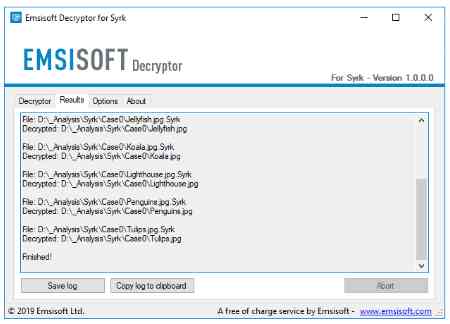Akon really did it. He’s founded his own fucking city — Akon City — and cryptocurrency is reportedly set to power it.

This is supposedly real. According to the rap star’s Twitter feed, an agreement between Akon and the country of Senegal has been finalized, which means that Akon City is officially here.
According to a CNN article from 2018, Akon noted that his city would be built on a 2,000-acre piece of land that was to be gifted to him by Macky Sall, the president of Senegal.
At the time, the website for Akon‘s city reported that the plot would be just five-minute’s drive from Senegal‘s international airport. At this stage, it’s unclear whether that piece of land is still the confirmed site for Akon City .
All transactional activity is supposedly to be in cryptocurrency
The proposed official cryptocurrency of Akon City isn’t Bitcoin, or even Ethereum. Akon is actually prepping to launch his own cryptocurrency, dubbed Akoin.
Akoin was vaguely announced in 2018, around the same time that Akon revealed his grand plan to build a “Crypto City.” A video posted to the project‘s Facebook page claims that “all transactional activity” in Akon City will be conducted using Akoin.
What’s worrying is that, at this stage, there doesn’t appear to be any white paper for Akon‘s cryptocurrency, so it’s hard to gauge exactly what we’re in for.
The associated website does however hype the release of a white paper and an “explainer video” sometime before February this year.
Still, the lack of a white paper apparently didn’t stop Akon from shopping his cryptocurrency to potential investors. Akoin’s roadmap promotes that the project had sought to raise funds via private equity and donations between January and June last year.
Until we know for sure how Akoins are distributed, as well as how the proposed network will be governed, it’s better to remain cautious in celebrating this endeavour, however pure Akon’s intentions.
Hard Fork has reached out to the Akoin Foundation to learn more about the release of its white paper, and will update this piece should we learn more.
Russia seizes 2,500 Bitmain cryptocurrency miners for dodging $1.2M in import fees
Authorities seized a trove of over 2,000 illegally imported Bitmain ASIC cryptocurrency miners from a Russian mining operation earlier this month .

The founder of mining firm Intelion Mining, Alexander Shashkov, said that armed customs agents raided his company’s offices in two Russian cities, CoinDesk reports .
Shashkov, made the news public when speaking at the TerraCrypto cryptocurrency mining conference in Moscow on July 25.
Unfortunately for him, Shashkov was not aware the seized cryptocurrency miners were imported illegally. According to the report, the authorities went after the hardware when its owners failed to provide valid documentation.
Intelion Mining sells ASIC hardware and runs data centers where individuals can host their own miners. Many of the miners operating at Intelion’s locations are owned by its customers and not the company.
It seems the mining hardware was part of a batch of 6,012 ASIC machines that were imported to Russia between August 2017 and February 2018. The trove of miners included Bitmain‘s Antminer S9-13.5, L3+, D3, and power supplies for the machines.
According to a search warrant seen by CoinDesk, the hardware‘s importer, the Far-East Trading and Industrial Company (DPTK), failed to pay approximately $1.2 million worth of import duties on the miners.
“In an undefined time, but no later than August 8, 2017, [DTPK CEO] Artem Aleksandrovich Bublik … got involved in a criminal conspiracy with undefined individuals, the goal of the conspiracy being avoiding due customs fees in especially large amounts while importing into the Eurasian Economic Union of ASIC miners and power elements for ASIC miners,” the warrant is reported to state.
DPTK allegedly gave customs officers false documents for the miners which incorrectly stated the hardware‘s prices.
The importer also said it procured the machines from a Korean firm, via another intermediary based in Hong-Kong. Howecer, when customs contacted the Korean firm, it said it no longer did business with DPTK, its last contract was signed in 2012, and has since expired.
The confiscation of hardware certainly came as a shock to Intelion Mining and its customers. But if a government takes a disliking to, or finds reasons to remove hardware like this, it probably will.
Earlier this year, the Iranian government seized 1,000 Bitcoin miners that it claimed were illicitly using state subsidized electricity.
Here’s how to fight back against Bitcoin-ransoming malware
Losing your data sucks. It sucks even more when someone uses ransomware to maliciously encrypt your files and demands Bitcoin to ensure its safe return. But don’t worry, because there are things you can do to get one over on the cyberbaddies.

Software company Emsisoft has recently released a free decryption tool for prevalent Bitcoin extorting ransomware, called WannaCryFake.
According to Emsisoft’s security researchers, WannaCryFake is a strain of the infamous WannaCry ransomware that began spreading around the world back in 2017, infecting big corporations including hospitals, banks, and telecom companies .
If you’ve identified that your system has been infected with the WannaCryFake malware, you might be able to use Emsisoft’s free tool to regain access to your files. Though, “under no circumstances should you make contact with the hackers,” the company says.
It’s a pretty simple process too. Firstly, ensure you’ve removed the malware from your system, and then download Emsisoft’s decryptor.
Run the decryptor and ensure the hard drives/storage devices that have been encrypted are selected and click the decrypt button.


While decryption tools can help you recover lost files, they don’t work all the time and sometimes experts just end up paying the hackers . Emisosft told Hard Fork that its decryptor has been 100 percent effective so far, based on reports of its use.
If off-the-shelf decryptors don’t work for you, there are other things you can try.
Emsisoft, along with a host of other security organizations, is part of the “ No More Ransom ” project, a collaboration between law enforcement agencies and cybersecurity firms to help victims hit back at ransomware.
On the “No More Ransom” website you can seek more help from experts. Here, you can upload a couple of encrypted files and more details about the ransomware attack and the project will direct you to a solution, if one exists.
That said, perhaps the best method is to protect yourself against malware in the first place and ensure you make regular backups of your data.
If you’re unlucky and have been hit by Bitcoin-ransoming malware, you can download Emsisoft’s decrypto here .
Sadly, Bitcoin-ransoming malware is quite prevalent. One strain of malware, Ryuk, managed to earn hackers more than $3 million in Bitcoin over the first five months of the year. It’s about time we put a stop to this, in any capacity we can.
Come say hi to the Hard Fork team at our blockchain event . On October 15-17 in Amsterdam, hear from top experts as they discuss the industry’s future.
Update September 26, 2019, 1345UTC: Emisoft replied to Hard Fork’s request for comment. The article has been updated to reflect this.











